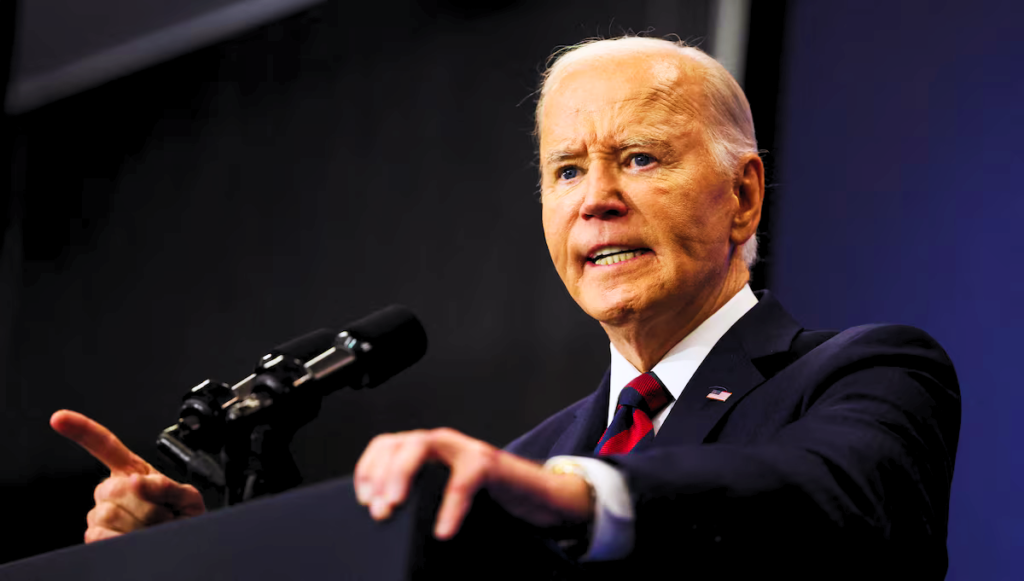President Joe Biden has officially signed a crucial spending bill, bringing an end to the intense debates and uncertainties surrounding a potential government shutdown. This move ensures the smooth functioning of federal agencies and protects essential services across the nation.

President Joe Biden signed a crucial spending bill on Saturday, extending the federal budget deadline to the early months of 2025. This timeline aligns with the upcoming Trump administration, during which Republicans will hold control of both the House and Senate.
This decision postpones major budget negotiations, paving the way for future debates on fiscal policies under Republican leadership.
President Joe Biden officially signed a critical spending package on Saturday, securing federal funding until mid-March and averting a government shutdown. The signing came just hours after the shutdown deadline had technically passed, putting an end to a week of unexpected political drama.
Key Provisions of the Spending Bill
The spending package, approved by the Senate early Saturday following a bipartisan House vote on Friday evening, keeps government funding at its current levels. Additionally, it includes:
- $100 billion in disaster relief for areas recovering from recent storms.
- $10 billion in direct aid for farmers facing ongoing challenges.
The legislation pushes the next spending deadline to early 2025, coinciding with the start of the Trump administration, when Republicans will control both chambers of Congress.
Biden’s Statement on the Spending Bill
In a statement following the signing, President Biden acknowledged that the agreement was a compromise:
“This agreement represents a compromise, which means neither side got everything it wanted. But it rejects the accelerated pathway to a tax cut for billionaires that Republicans sought and ensures the government can continue to operate at full capacity.”
A Chaotic Week in Washington
President Biden played a minimal role in the tense negotiations that unfolded throughout the week as the shutdown deadline approached. Earlier in the week, White House Press Secretary Karine Jean-Pierre criticized President-elect Donald J. Trump, accusing him of orchestrating a potential shutdown and urging Republicans to honor their commitments.
“A deal is a deal. Republicans should keep their word,” Jean-Pierre stated during the negotiations.
What’s Next?
While this agreement provides temporary relief, the postponed deadline sets the stage for intense budget negotiations in 2025 under a Republican-controlled Congress. With fiscal priorities likely to shift, both parties are preparing for contentious debates over government spending and policy reforms.
Why This Matters for Readers
This development highlights the importance of bipartisan cooperation in avoiding government shutdowns and maintaining essential services. As future deadlines loom, the political landscape will play a crucial role in shaping federal policies and funding.
Trump and Musk Criticize Spending Bill as GOP Faces Internal Divisions
Two earlier versions of the spending bill signed by President Joe Biden failed to reach his desk, exposing deep divisions within the Republican Party and drawing sharp criticism from high-profile figures like Elon Musk and former President Donald Trump.
Failed Attempts to Pass the Bill
The first version of the bill, a comprehensive package, faced heavy criticism on social media. Elon Musk relentlessly attacked it on Wednesday, and Mr. Trump joined in, denouncing the package. The backlash prevented the bill from even reaching the House floor for a vote.
A second, simplified version included a controversial provision to suspend the debt limit, a demand from Mr. Trump. However, it failed to pass the House on Thursday night due to opposition from three dozen fiscally conservative Republicans, who joined most Democrats in voting against it.
Internal GOP Tensions Exposed
The spending fight highlighted the limited influence Mr. Trump has over the right-wing faction of the Republican Party, which remains staunchly opposed to increasing the national debt.
Representative Chip Roy, a Republican from Texas, delivered a scathing critique of the proposed bill on Thursday night:
“To take this bill yesterday and congratulate yourself because it’s shorter in pages, but increases the debt by $5 trillion, is asinine. I’m absolutely sickened by a party that campaigns on fiscal responsibility and has the temerity to present this as fiscally responsible.”
Trump’s Stance on the Debt Ceiling
Mr. Trump, while critical of the spending bill’s debt implications, appeared more focused on avoiding direct responsibility for addressing the looming debt ceiling crisis. The debt ceiling is projected to be reached in January, creating a potential fiscal showdown for the incoming administration.
In a statement on Wednesday, Mr. Trump said:
“Increasing the debt ceiling is not great, but we’d rather do it on Biden’s watch.”
What’s Next for Republicans?
The spending debate underscores ongoing challenges within the GOP as it balances fiscal conservatism with political pragmatism. With the debt ceiling deadline approaching and Republicans set to take control of Congress, the party faces mounting pressure to present a unified strategy for managing the nation’s finances.
Why This Matters for Readers
This episode reveals the complexities of fiscal policy debates and the growing ideological divisions within the Republican Party. As the debt ceiling crisis looms, the stakes are higher than ever for lawmakers to find a balanced solution that aligns with public expectations.



Pingback: Voter List Name Missing? Here's How to File a Complaint